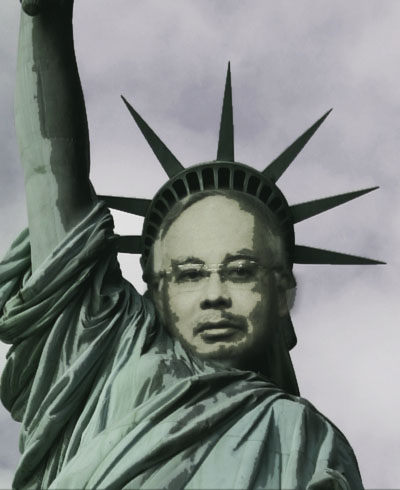In an exclusive interview with MIC deputy president Dr S Subramaniam, he said the party is confident of getting back the lost Indian votes due to its good work.
INTERVIEW

PETALING JAYA: MIC is confident of regaining the support from the Indian community lost during the last 2008 general election, given the continued hard-work it has put in to address a wide range of Indian-related issues.
Expressing this confidence during an interview with FMT recently, MIC deputy president Dr S Subramaniam said: “We are confident that we will be able to get better support from the Indian community now in comparison to 2008.”
During the one-hour-plus interview at his office in Pusat Bandar Damansara here, the Human Resources Minister took pains to list down the achievements of the Cabinet Committee on Indian Affairs to justify that claim.
This committee was formed in 2008 and is chaired by Prime Minister Najib Tun Razak and under the committee, a Special Implementation Task Force (SITF) is tasked with the execution of the plans.
Heading the task force is none other than Subramaniam himself, who said that numerous programmes have helped change the “feeling of the Indian community towards the government” to be more “positive”.
This, he said, has translated into an increased support, adding that on average, about 60 to 70 percent of the Indian voters support Barisan Nasional, a much higher figure than the estimated 40 percent on average in 2008.
“Through the Cabinet Committee for Indian Affairs, the SITF and specific initiatives of top MIC leadership, many specific issues of the Indian community have been addressed or are in the process of being addressed,” said Subramaniam.
He said the issues that have achieved some results include a RM235 million allocation for building and upgrading Tamil schools for the past three years and another RM100 million for the next year.
Better job opportunities
Subramaniam also said the government has managed to address problems with documentation, with over 9,000 Indians having registered with the MyDaftar campaign.
“Through the MySkill Programme, 2,600 Indian youths have been placed in various government skills training centres, and 400 Indian SPM students were given government scholarships,” he said.
Subramaniam said another initiative, called MyJobs, is in the pipeline to create better job opportunities for the Indian community in the public sector, government-linked companies, army, police, as well as in the private sector.
“We will start the MyJobs programme in December 2011 and continue next year,” he said.

Subramaniam said there have been two main focuses for the Indian community, which he admits are trapped in a low-income cycle – namely, allowing more employment opportunities in the government service and more opportunities for Indian businesmen to take part in government-based projects.
“We have asked the prime minister for a bigger level of involvement (of the Indian community) in mega-projects – that a certain quantum be reserved for contractors from the Indian community.
“We believe that that would have a larger spin-off effect – employment opportunities for a larger spectrum of people and generating more economic activity for the Indians. If these issues have been addressed well, the Indian community’s support for BN will get back to what it was before,” said Subramaniam, adding that there are plans to allow for more loans to aid businesses.
Subramaniam also took a swipe at the Indian leaders in the opposition Pakatan Rakyat coalition, saying that none of them have taken it upon themselves to come out with any concerted attempt to address Indian issues.
Political mileage
He said this can be seen in Penang and Selangor, where mega-issues are not addressed and approach has been “ad hoc, sporadic and one-off”, done merely to get political mileage.
“They even have a deputy chief minister in Penang (P Ramasamy) who came on record to say that he is not the representative of the Indian community, but answerable to all members of the community,” he said.
Subramaniam said that MIC expects no change and is likely to retain and contest in all nine parliamentary seats and 19 state seats in the 13th general election. “Unlikely to be more. Very unlikely there will be less.”
But he addmitted that seat swaps was possible.
Asked if there has been any finalisation of candidates, Subramaniam said: “No, we’ve not done anything”, but added that he discussed such matters with party president G Palanivel “quite often”.
He also said that there would be more new, young faces being fielded in the election, but declined to reveal any names at the moment.
On his own parliamentary seat in Segamat, Subramaniam said: “As it is, I’ll probably be contesting back in Segamat and we’ve been working very hard on that seat.” He said that he visits his constituency weekly.
Asked to gauge his “winability” against people like Chua Jui Meng, rumoured to be eyeing the seat, Subramaniam said simply: “Well, it’s okay. But we cannot take it easy, because with the current political developments, this election will be a very challenging one to everybody; we’re all working very hard in all possible ways to increase our chances of success.”
Below are excerpts from the interview:
On the 13th general election, how prepared is MIC?
Generally, the support of the Indian community as we see it is definitely better than it was in 2008. Our worst situation was in 2008, and since then there has been a greater shift in the support of the Indian community, though it varies from area to area. On average, it’s about 60 to 70 percent of the Indian voters who would probably support Barisan Nasional; this is higher than the 40 percent on average we had in the 2008.
As far as MIC is concerned, the grassroots machinery geared towards identifying Indian voters has already been set in motion. The election machinery at all the branches and divisions is reconciling their membership. We have also embarked on new voter registration (exercise).
In addition, specific problems on the ground have been identified and intervention mechanisms have been put in place. We are confident that we will be able to get better support from the Indian community now in comparison to 2008. National MIC leaders have frequent meetings and interaction with grassroots leaders to motivate them and enhance their performance.
We’ve been able to identify some of the main problems and we’re slowly addressing them. We are able to address issues of Tamil schools in the past few years; we have had a massive campaign to address the problem of documentation within the Indian community, and this has produced some results. We have recently started a campaign to offer greater opportunities in skills training for Indian youths, and this (too) has produced results. We’re also doing something to provide more jobs for Indians, specifically in certain areas within the government. Lack of jobs is something that is a big concern in the Indian community. That’s an issue we had highlighted many times with the top leadership. We’re launching a programme (to provide) better employment (for Indians) in the public services, government-linked companies (GLCs), army, police. I hope that with this, more opportunities will be created. The prime minister himself has been going on the ground and meeting different Indian groups; he has been present in Indian functions like in Batu Caves, and so on. This has brought him closer to the Indian community.
Through the Cabinet Committee for Indian Affairs, the Indian Task Force and specific initiatives of top MIC leadership, many specific issues of the Indian community have been addressed or are in the process of being addressed. They include:
- Tamil schools – the government has allocated RM235 million in the last three years and RM100 million for next year for building and upgrading Tamil schools. This has given a big boost to infrastructure facilities in Tamil schools and created a better environment.
- Documentation issue – over 9,000 people had registered during the MyDaftar campaign carried out with the assistance of the National Registration Department. All the issues are given individual attention; we hope to get approval for 2,000 citizenship for some of the applicants before the end of 2011.
- Through the MySkill Programme, 2,600 Indian youths have been placed in various government skills training centres.
- Some 400 Indian students were given scholarships through the Public Service Department and 1MDB Fund to further their education after SPM.
- The number of training places for untrained attachment teachers (GSTT) teachers to become permanently trained teachers was increased three-fold in the last three years.
- Program Mesra Rakyat was conducted in nine places, where 11 government departments and agencies met with about 13,200 people and addressed many issues.
- MyJobs. We have begun an initiative to create better job opportunities by collaborating with the public sector, GLCs, army, police and leading companies in the private sector. The aim of this programme is to increase employment opportunities for Indian youths and to identify and address the issues which will increase their employability. We will start this programme in December and continue next year.
- Increased opportunities to obtain more loans for micro-enterprises have been made available through Tekun Nasional and Amanah Ikhtiar. The government has recently announced an allocation of RM100 million through Amanah Ikhtiar in the 2012 Budget.
- Estate housing scheme – a revolving fund has been created by the government with an allocation of RM50 million to enable estate workers to purchase houses costing below RM60,000. This is a very friendly scheme which will overcome the obstacles faced by estate workers to own houses.
- The government through the initiatives of the prime minister has given financial assistance to Indian NGOs and temples to the tune of RM10 million last year. This has helped the NGOs to carry out grassroots activities and contribute to the overall development of the community.
There are two main areas where we need assistance: employment opportunities in the government service, and opportunities for Indian businesses to take part in government-based projects. We have highlighted these two areas to the prime minister. He has recently given a grant of RM8 million to facilitate the development of Indian entrepreneurs on a smaller level. We will be doing this via the Suria Cooperative to support the entrepreneurs. We have asked the government for a bigger level of involvement (by the Indian community) in mega-projects – that a certain quantum be reserved for contractors from the Indian community. We believe that that would have a larger spin-off effect – employment opportunities for a larger spectrum of people and generating more economic activity for the Indians. If these issues have been addressed well, the Indian community’s support for BN will get back to what it was before.
How does MIC plan to counter Pakatan Rakyat’s promises? The goodies that Pakatan is dishing out, for example, the promise of an Indian deputy prime minister if it wins?

Of course, these promises are political gimmicks. We have to look at the overall development of the Indian community. Simply promising top government positions to non-Malays if Pakatan were to win the general election is useless because what matters is not the post but Pakatan’s ability to use the position for the welfare of the community.
If you look at it in totality, the recent recognition of the problems of the Indian community and the willingness to overcome them in terms of the transformation programmes in education, business and employment opportunities… these are the real issues that affect the grassroots Indian. Even with an Indian deputy chief minister in Penang (P Ramasamy), it did not increase opportunities to improve the welfare of the Penang Indians. In fact, he (Ramasamy) has gone on record to say that he is not the representative of the Indians in Penang, and that he is there as a member of Pakatan, and that he is answerable to all members of the community.
By and large, the Pakatan Indian leaders have not made it their primary agenda to address the woes of the Indian community. And neither has Pakatan come up with any proposal in Penang or Selangor (which has a sizeable number of Indians) to address the mega-issues facing the Indians. Their whole approach has been ad hoc, sporadic and largely one-off, and merely for getting political mileage.
How is that different in terms of what MIC is doing?
In BN, the whole agenda of the MIC is purely Indian; we don’t have any other agendas as far as the MIC is concerned. Although when we take on government roles… we have different roles (to play). Until today, if there is any issue that affects the Indian community, people don’t blame Pakatan or its leaders for not solving it. The initial blame goes to MIC, and this is even done by the opposition when it has problems in its own state. There is already an acceptance that if it is an Indian issue, it has to be a MIC (issue). MIC is a huge structure that has nearly 3,600 over branches throughout the country, with a total membership of 600,000. I don’t think there is any other structure or network that can go to every area where there are Indians… MIC is part and parcel of the Indian community. It would not be fair to say that MIC has totally failed (the Indian community). There are events in the past which have left some bitter experience within the Indian community… But with all the improvements (we are doing), we hope the Indian community would be able to judge whether MIC is able to deal with the Indian issues or not.
Back to the general election, have the candidates been picked?
No, we’ve not done anything.
How about suggestions/proposals?
On the number of seats, we’ll probably be allowed to contest the same number of seats as before, that is, nine parliamentary and 19 state seats. We’ll be contesting in all of those seats.
Will there be more seats?
Unlikely to be more. Very unlikely there will be less.
Will there be seat swaps?
That’s possible.
How often do you discuss such matters with the (MIC) president (G Palanivel)?
Quite often.
Can we expect new, young faces?
I’m sure there will be. As in all elections, there will be a mixture of old and new faces. The final prerogative of deciding on the candidates is with the president (Palanivel) and Prime Minister (Najib Tun Razak).
Could you tell us any names at the moment?
No (laughs).
As for your own seat…
I’ll probably be contesting again in Segamat and we’ve been working very hard on that seat.
We’ve been told that you have been visiting your constituency every single week, without fail?
Yes, that’s true.
How do you gauge your winability there?
Well, it’s okay. But we cannot take it easy, given the current political developments. This election will be very challenging… we’re all working very hard to increase our chances of success.
There are rumours that (PKR vice-president) Chua Jui Meng is eyeing the seat (Segamat)…
There are rumours that many people are eyeing the seat, but we don’t give much (attention) to that. Because when you go for election, there will definitely be someone who is contesting against you; it could be any person, so you have to do your job and hope for the best.
What is your vision for the Indian community in your present position as a leader?
At the moment, the Indian community is trapped in the low-income cycle. And so we have to get this community out of that; a lot of their other problems are related to this cycle. The two areas that might assist us in that transformation are education and economic improvement. And we are focusing on them.
As far as Tamil schools are concerned, there has been major assistance from the government in the last three years; we’re also seeing students from Tamil schools improving (in their performance). I think that it’s going in the right direction.
We are looking into other ways of increasing the number of students entering public universities by increasing the number of matriculation places. About 500 students were given matriculation seats last year. We have proposed alternative mechanism to the government to make available another 1,000 places. This will increase the opportunities for Indian students in public universities.
In terms of economic performance, the government has created more opportunities to help the Indians, for example the recent announcement of Amanah Ikthiar, where dedicated amounts of loans will be given to the Indian community. Beside under the Tekun scheme, we’ve increased the loans. Now we’re asking for more opportunities for Indian businessmen to benefit from government projects. If these can be done, I think we might see an increase in the number of Indian businessmen. We can’t, of course, do an immediate transformation. But with a clear-cut agenda, we will be able to achieve it. So far the prime minister has been supportive, he has accepted the fact that Indians need assistance and support to get out of this (low-income trap).
Maybe, in the next 10 years or so, we’ll see a major transformation in the lower third of the Indian community, which is where all our problems are. We have a small upper-class Indian and we have a reasonably large middle class, which is quite independent. But our concern is the lower third, where all of our problems are: there is poverty, low income, dependency on the welfare system, crimes, social evils… Some 30 per cent of the total number in the working class are in the lower income group. Transforming them is our biggest challenge. Upward mobility for them can only come from education… So that is the way to get out.











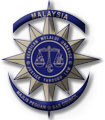 Please click
Please click 
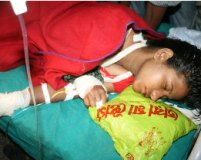
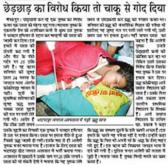
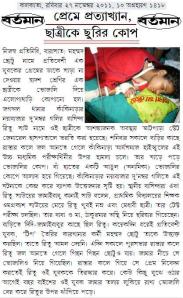



 Commenting on the government’s tabling of the Peaceful Assembly Bill, Dr Mahathir (picture) said it proved the government was quick to adjust and listen to public concerns.
Commenting on the government’s tabling of the Peaceful Assembly Bill, Dr Mahathir (picture) said it proved the government was quick to adjust and listen to public concerns.



